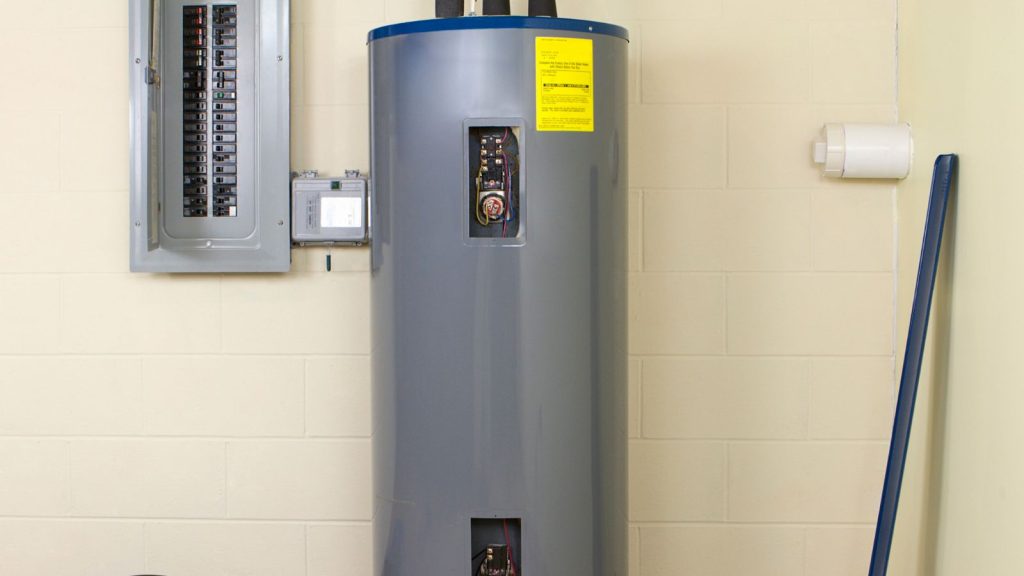These tips will help your hot water tank last longer.
A water heater replacement can be an unwanted cost. And have you ever noticed that the tank goes bad on you at just the wrong moment? Check out these easy to implement water heater maintenance tips to keep yours in tip-top shape.
Must-do Water Heater Maintenance Tips for Every Homeowner
Try out these tips to avoid costly replacements:
Eliminate Sediment Buildup:
Over time, sediment, such as calcium and minerals, may accumulate within your water heater, diminishing its efficiency and posing potential harm. Flushing your water heater annually helps clear out this gunk, improving its performance and prolonging its life. Just hook up a hose, drain the tank, and watch all that sediment disappear.
Inspect the Pressure Valve:
The pressure relief valve is a protective measure for your water heater, akin to a safety net. It is essential for releasing excessive pressure and averting tank ruptures. Quickly assess its performance by lifting the lever and permitting water to discharge. Consider replacing it promptly if it fails to release water or exhibits leakage afterward. Addressing this issue early is preferable to managing a potential catastrophe later.
Inspect for Leaks:
A leaky water heater can lead to major headaches (and bills). Consistently inspect for indications of leakage around the tank, connections, or pipes. Promptly tighten loose fittings and replace compromised components to reduce the risk of water damage and mold growth.
Insulating your tank:
Implementing this straightforward technique can lead to significant savings on your energy expenses. Wrapping your water heater in an insulating blanket helps retain heat, meaning your heater doesn’t have to work as hard to keep your water warm. Furthermore, it’s a simple do-it-yourself project that yields long-term benefits.
Keep the Area Clear:
Your water heater needs breathing room to do its job properly. To facilitate adequate airflow, ensure the vicinity is free from clutter and debris. This practice enhances the water heater’s efficiency and minimizes the potential for fire hazards.
Schedule Professional Inspections:
While DIY maintenance is great, scheduling a professional inspection annually is also a good idea. A qualified plumbing technician can catch any potential issues early on and perform maintenance tasks that require specialized knowledge or tools, ensuring your water heater stays in tip-top shape.
Inspect the Anode Rod:
The anode rod, frequently overlooked yet essential, safeguards your water heater from corrosion. The tank becomes susceptible to rust and potential leaks as it degrades over time. Perform an annual inspection of the rod and consider replacing it if corrosion exceeds 50%. This minor investment can spare you significant troubles down the line.
Adjust the Temperature:
We all love a steamy shower, but cranking up the temperature on your water heater isn’t just wasteful—it can also be dangerous. Adjust your water heater’s temperature to a safe and efficient level, usually around 120 degrees Fahrenheit. This practice not only prevents scalding but also minimizes energy usage and extends the lifespan of your unit.
Be Attentive to Unusual Sounds:
Be attentive to unusual sounds from your water heater; it should operate quietly without any unusual noises. If you hear banging, popping, or rumbling sounds from your unit, it could be a sign of sediment buildup, a failing heating element, or even imminent tank failure. Don’t ignore these warning signs! Call a plumber pronto to diagnose and fix the issue before it escalates into an emergency.
Inspect Gas Connections (For Gas Heaters):
If you have a gas water heater, you must check for any signs of gas leaks or loose connections. Use a soapy water solution to carefully inspect the connections for bubbles indicating a leak. In the event of detecting leaks or suspecting issues with the gas supply, promptly seek assistance from an emergency plumber to address the situation without delay. Gas leaks are no joke and require prompt attention from a professional.
The Takeaway: Taking Good Care of Your Hot Water Tank Beats a Costly Repair
You’re now equipped with an arsenal of fantastic maintenance tips meticulously designed to safeguard the optimal performance of your water heater. These invaluable insights not only empower you to maintain the functionality of your unit but also serve as the cornerstone of ensuring your abode remains a haven of warmth and comfort throughout the seasons.
Remember, the essence of regular upkeep transcends mere routine; it embodies a proactive approach that reverberates in the prolonged lifespan of your water heater. By faithfully following these maintenance procedures, you’re safeguarding a crucial appliance and investing in the durability and effectiveness of your home’s heating system.
Whether flushing out sediment, meticulously inspecting for leaks, or attuning your senses to detect strange noises, dedicating a little time and care to your water heater promises substantial dividends in the long run.
Moreover, if you ever find yourself in the unenviable situation of being submerged in hot water, rest assured that professional assistance is readily available. Whether it’s a routine maintenance check or an unforeseen emergency, entrusting the expertise of a skilled plumber or emergency plumbing service ensures swift resolution and the restoration of comfort to your home.
So, here’s to a future filled with rejuvenating warm showers and blissfully stress-free maintenance days ahead! May your commitment to diligent upkeep serve as the cornerstone of a home that exudes warmth, comfort, and unwavering reliability. Cheers to your water heater’s continued efficiency and your peace of mind!



